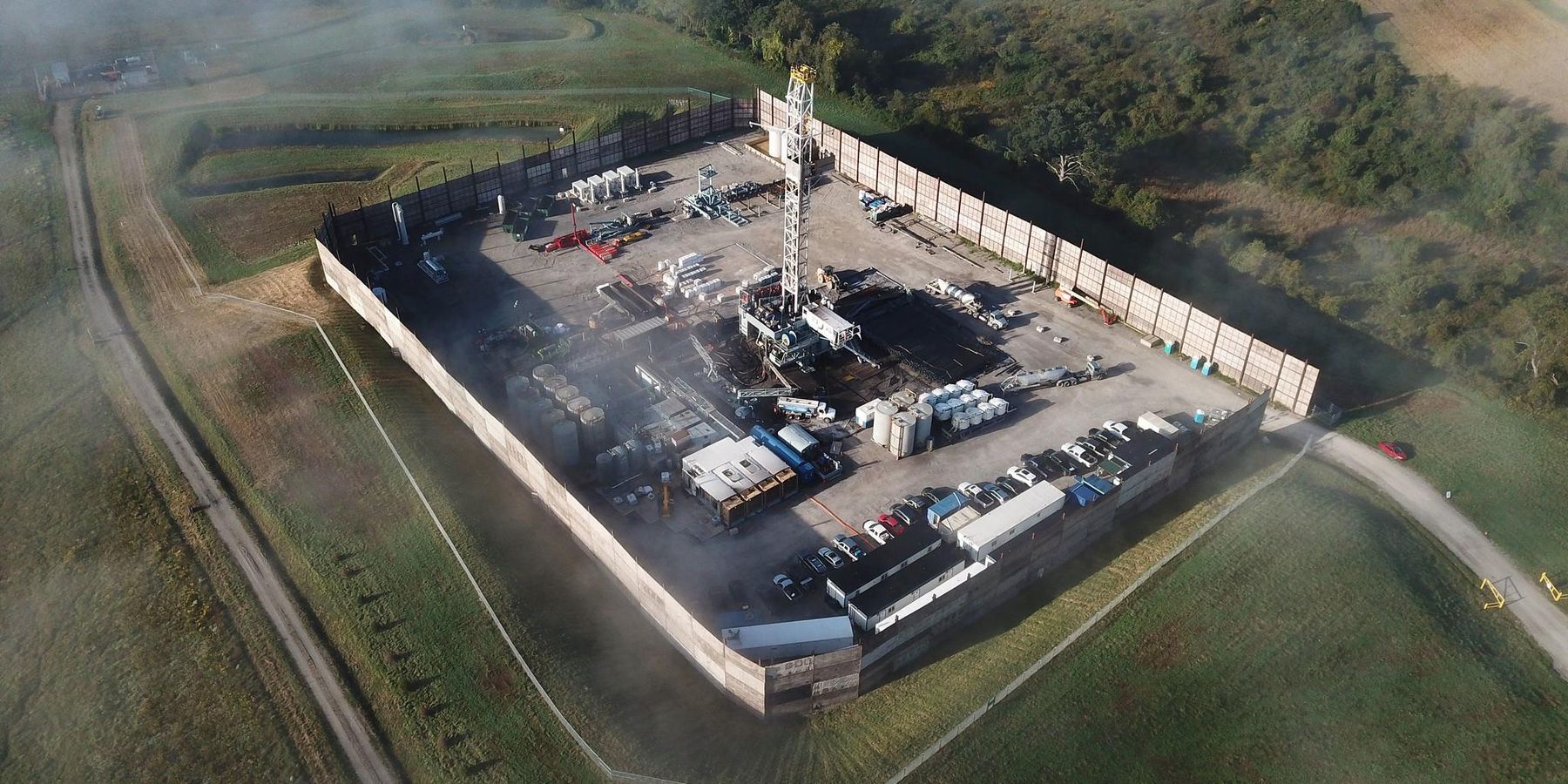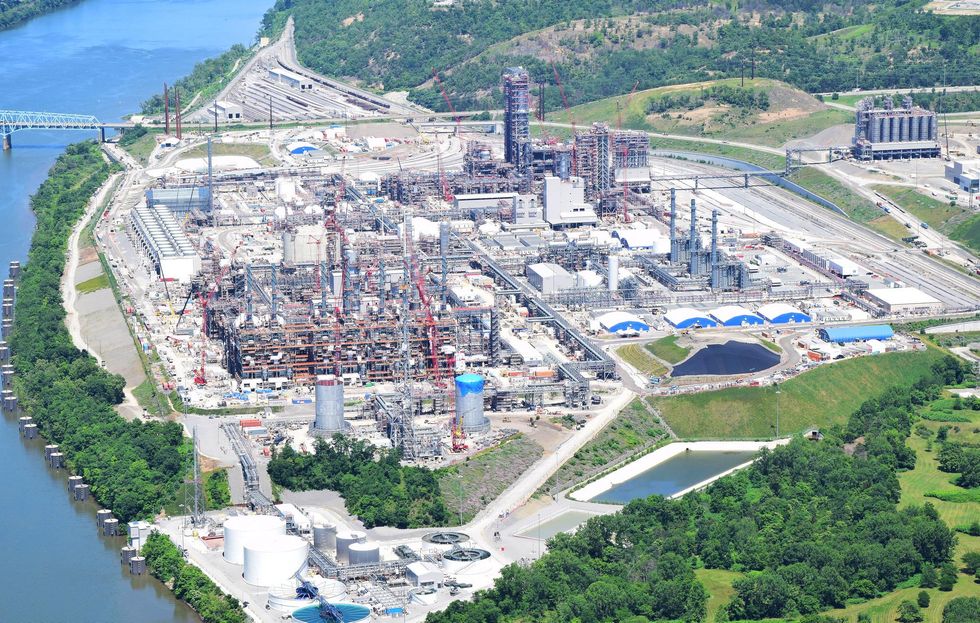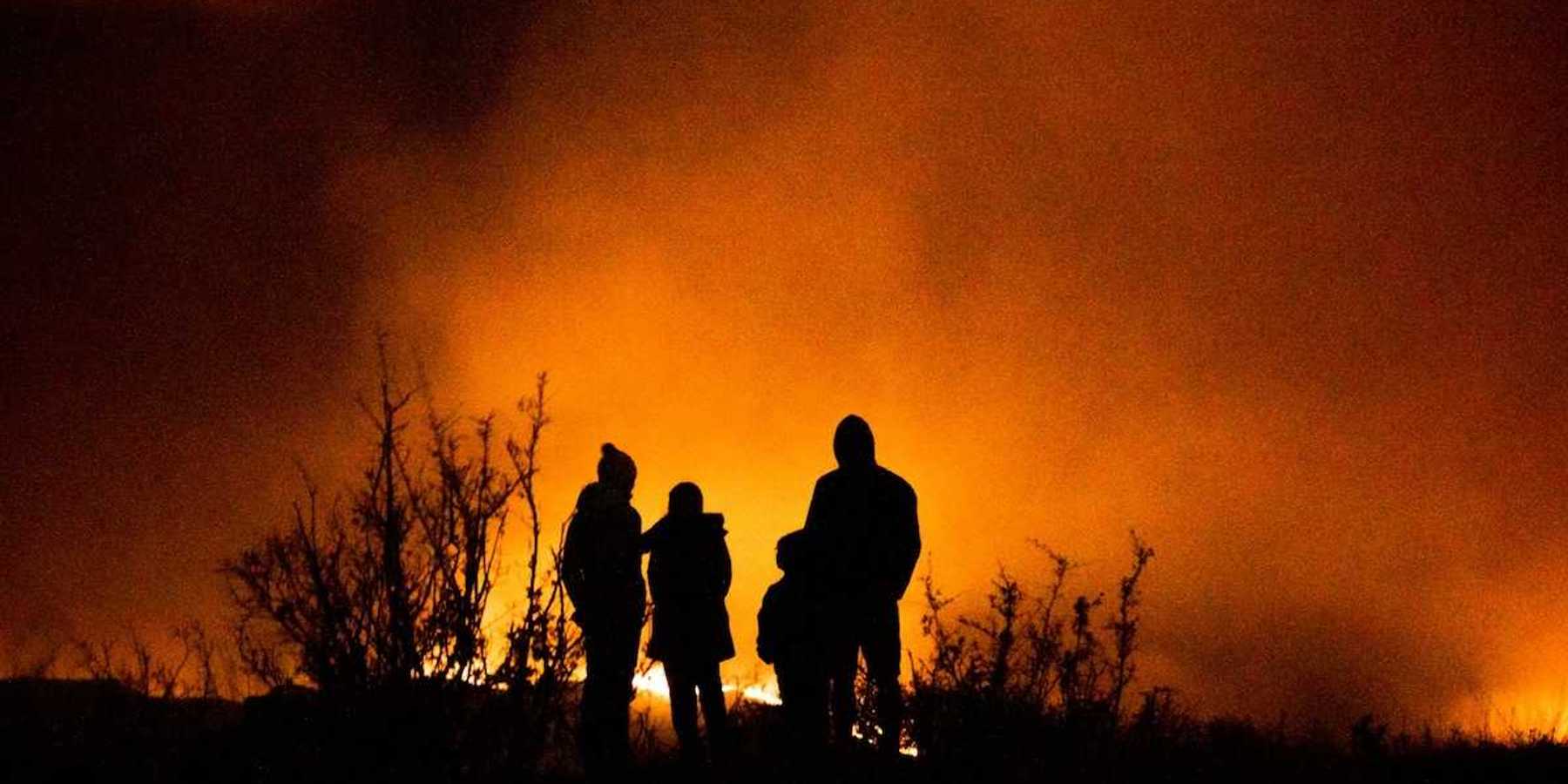
How Colorado is preventing PFAS contamination from the oil and gas industry
And how other states, including Pennsylvania, could do the same.
Editor’s note: This story is a follow-up to our recent report that found PFAS in a private well near fracking in Pennsylvania.
PITTSBURGH—In June, Colorado became the first state to ban the use of PFAS during oil and gas extraction — and now, in light of recent research finding the potential for widespread contamination, some are calling for a similar ban in Pennsylvania.
Last year it was revealed that PFAS (per- and polyfluoroalkyl substances), a group of more than 9,000 chemicals, have been used in oil and gas wells for decades. The chemicals, which are water- and grease-repellent, are sometimes used in fracking fluid to make the chemical mixture more stable and efficient in flushing oil and gas out of the ground at high pressure. PFAS may also be used during initial drilling and other phases of oil and gas extraction — not just fracking.
That’s about to change in Colorado: A new bill restricts PFAS in products like carpets and furniture, fabric treatments, cosmetics, food packaging and children’s products; and bars the use of PFAS in any type of oil and gas extraction, including fracking. The law will take effect on Jan. 1, 2024.
With a separate, related bill, Colorado also became the first state to require oil and gas companies to publicly disclose the complete list of chemicals used “downhole” for all types of wells, and to certify that no PFAS were used during drilling or extraction.
Downhole chemicals include those used during drilling and other phases of operations. Most public disclosure laws in other states focus mainly on chemicals used in fracking wells, and most only require disclosure of chemicals used during extraction, ignoring the chemicals used during drilling or other operations.

“Prior to this legislation, there was a lot of secrecy involved in the chemicals being used downhole in oil and gas production operations,” Ramesh Bhatt, who advocated for the bill’s passage as chair of the conservation committee of the Colorado Sierra Club, told EHN.
Some scientists and health advocates think other states with a heavy oil and gas industry presence, including Pennsylvania, should do the same.
“When you’re talking about chemicals as toxic and persistent as PFAS, it’s extraordinarily risky to allow them in oil and gas extraction,” Dusty Horwitt, an environmental health consultant who testified before Colorado lawmakers considering the drilling disclosure law, told EHN.
Earlier this year, a group of researchers tested Washington County, Pennsylvania, resident Bryan Latkanich’s water for PFAS and detected seven of the chemicals, including several at levels well above the U.S. Environmental Protection Agency’s recommended thresholds. Latkanich formerly had two fracking wells drilled about 400 feet from his home.
Carla Ng, a researcher who studies PFAS at the University of Pittsburgh and conducted the tests that found PFAS in Latkanich’s water, told EHN, “It’s very difficult to control where those chemicals go when drillers are pushing fluid into the Earth’s subsurface. Because of how harmful and persistent PFAS are, they should not be used in cases where their spread cannot be controlled.”
Critical gaps in state laws

A new Shell ethane cracker in Beaver County, Pennsylvania, which is expected to create additional demand for fracking wells.
Credit: Ted Auch, FracTracker Alliance, 2021
The use of PFAS in oil and gas wells is likely creating an under-appreciated source of PFAS contamination, adding to Americans’ exposure to these harmful chemicals through food, personal care products and drinking water. But lack of transparency makes it difficult to assess how widespread the problem is.
“It’s impossible to know at this point,” said Horwitt, who also consults for the environmental health advocacy group Physicians for Social Responsibility.
Horwitt was lead author on a report published this month that found that in 16 leading oil- and gas-producing states, manufacturers of the chemical mixtures used in oil and gas extraction are generally not required to disclose complete lists of the substances they use.
The report also found that a number of states, including Pennsylvania, have laws that waive liability for oil and gas companies that don’t disclose complete lists of ingredients to regulators — as they’re required to by law — if they never received complete lists from chemical manufacturers.
Pennsylvania’s law also says chemical manufacturers can’t be held responsible for failing to disclose complete lists of ingredients in these products.
“So they’re all just off the hook,” Horwitt said.
The potential use of PFAS during drilling and other downhole operations is especially troubling, Horwitt said, because operators typically bore straight through groundwater, long before any casing or cement has been added to seal it off.
Further complicating things, some states, including Pennsylvania, have different disclosure requirements for conventional and unconventional wells. Operators of fracking wells have to publicly disclose chemicals used in their wells (minus any “trade secrets”), but for conventional wells, the public can only access that information through requests to the Pennsylvania Department of Environmental Protection (DEP).
Colorado closes the gaps
In recent years, Colorado has enacted some of the most health-protective oil and gas regulations in the country. The two new PFAS bills will further advance those protections.
“We have the most advanced timeline for banning these chemicals,” Josh Kuhn, the water policy manager for Conservation Colorado, one of the organizations that advocated for the legislation, told EHN. “This is a national leading policy.”
The bill was initiated after an 11-year-old girl named Madhvi Chittoor met with Colorado state Representative Lisa Cutter in the summer of 2021 to discuss PFAS contamination.
“When all of our aquifers are polluted, where will we get our drinking water from?” Chittoor asked. “When our waterways like ponds, lakes, rivers are polluted, where will the fish live? What water will the animals drink? What water will the farmers use to grow our crops?”
Cutter, a Democrat, was moved by Chittoor’s testimony and started working with groups like Earthjustice, the Sierra Club, and Conservation Colorado to craft the PFAS bill.
Many other states have passed bills restricting the use of PFAS in certain products, but none have addressed the use of PFAS by the oil and gas industry.
Kuhn said the effort to include the oil and gas industry in the state’s PFAS ban started after Physicians for Social Responsibility published a report in January 2022 that found PFAS were used in at least 10 Colorado counties. A subsequent analysis by the advocacy group Public Employees for Environmental Responsibility (PEER) found that Colorado had the most potentially PFAS-contaminated sites of any state, 86% of which were associated with the oil and gas industry.
Mary Bradford, a Republican member of the Colorado state House who cosponsored Colorado’s main PFAS bill, said she was mainly concerned about the health effects of PFAS on children and in consumer products.
“Now that we believe that PFAS is a potential health risk, we could be very surprised about how many products intentionally contain the PFAS compounds,” she said in a statement. Bradford’s district has experienced PFAS contamination of drinking water and well-documented PFAS exposures in people from a nearby military base.
“Chemicals that can harm people’s health are not just a one party issue,” Kuhn said.
While the bill banning PFAS didn’t have unanimous support, Kuhn said, they got more pushback against the consumer products portions of the bill than the oil and gas portion. The advocates and legislators working to get the bill passed talked directly with representatives from the oil and gas industry, which led to provisions that would allow for the use of PFAS in certain parts of oil and gas operations where they’re essential and good alternatives don’t exist — in gaskets and other pieces of equipment, for example.
Advocates like Kuhn and his colleagues also partnered with water utilities, which helped build bipartisan support.
“Water utilities on the receiving end of polluted water face significant challenges when it comes to removing PFAS,” Kuhn said.
Physicians for Social Responsibility’s reports cited evidence that PFAS may be used during the drilling phase for fracking and other types of oil and gas wells, but because no states currently require public disclosure of the chemicals used during drilling (as opposed to chemicals used during extraction), it’s impossible to know how common the practice is.
Colorado has found a solution to that with the separate bill that requires disclosure of downhole chemicals and requires that both operators and chemical manufacturers certify that no PFAS have been used.
“The first bill bans the use of PFAS by the oil and gas industry, and the second bill creates accountability,” Kuhn said.
There are a number of downhole operations, including drilling, that are different from what’s technically called fracking, Bhatt, with the Sierra Club, explained. Those chemicals are overlooked in most state laws.
Initially, the bill required complete disclosure of the ingredients used and their proportions, but after pushback from the industry related to revealing trade secrets, it was amended to require a complete list of individual chemicals used in oil and gas operations, but not their proportions or the exact mixtures used in specific products.
“You have to weigh the importance of protecting trade secrets against the importance of protecting health and the environment,” Bhatt said, “but we think this was a good compromise.”
Representatives from the American Petroleum Institute and the Colorado Oil and Gas Institute responded to the report by Physicians for Social Responsibility on the use of PFAS in oil and gas extraction last year, saying they agreed that PFAS shouldn’t be intentionally used in fracking fluid, and contesting the idea that trade secrets provisions could be hiding extensive PFAS use.
The American Petroleum Institute has also said that PFAS use in oil and gas wells is limited and that the trade group will continue to review available data to protect health and safety.
Possibilities for Pennsylvania
Several advocacy groups, including PennFuture, the Clean Air Council and the Environmental Health Project, have called for action on the issue of potential PFAS contamination from the oil and gas industry in Pennsylvania.
Kuhn and Bhatt said they haven’t heard much from lawmakers or advocates in Pennsylvania or other states about crafting similar legislation yet, but that they’d be happy to consult about how they’ve successfully regulated PFAS in Colorado. Kuhn suggested reaching out for resources to Safer States, an environmental health advocacy group that tracks legislation related to chemical safety throughout the states..
Kuhn also cautioned that while the bill was being crafted, advocates and lawmakers were pressured by some chemical industry groups to limit the specific PFAS they were restricting, which they did not do, and emphasized that a comprehensive ban on the chemicals is the most protective option.
“In Colorado,” he said, “no longer will any of these ‘forever chemicals’ be inserted into the ground, potentially threatening water supplies needed by both humans and wildlife.”
See part 1, PFAS: The latest toxic concern for those near fracking













